The Maldives has become one of our key markets, as many of our valued customers are based there. To meet this growing demand, we have secured long-term contract rates with leading carriers including COSCO, OOCL, APL, EMC, MSK, and HMM. These partnerships allow us to consistently provide highly competitive freight rates for shipments from China to all major ports in the Maldives.
By choosing China Top Freight,shipping from China to the Maldives becomes simple and stress-free. Just hand over your cargo, and we will manage the entire process—from booking and transportation to final delivery. Our goal is to be your most reliable freight forwarding partner for China–Maldives trade. Contact us today for a tailored quote at the best rate.
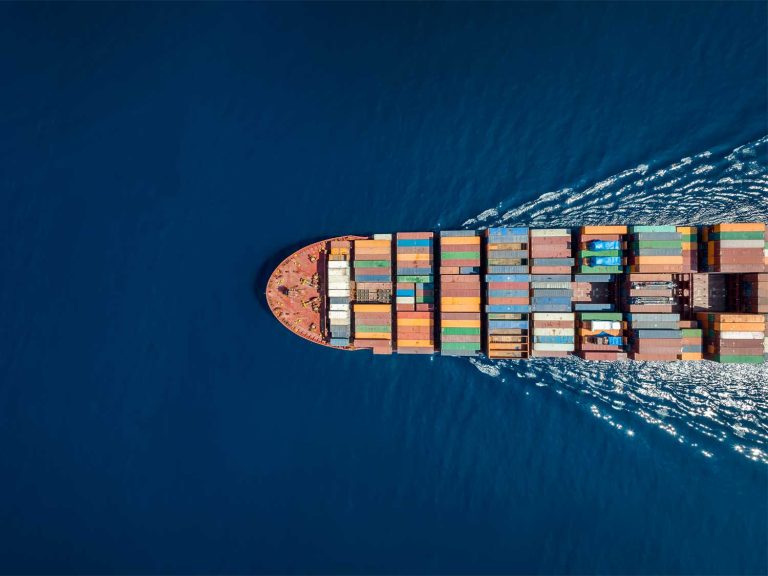
We offer attractive ocean freight rates and customized shipping solutions from China to the Maldives, including efficient options for inland destinations, based on your required transit time.
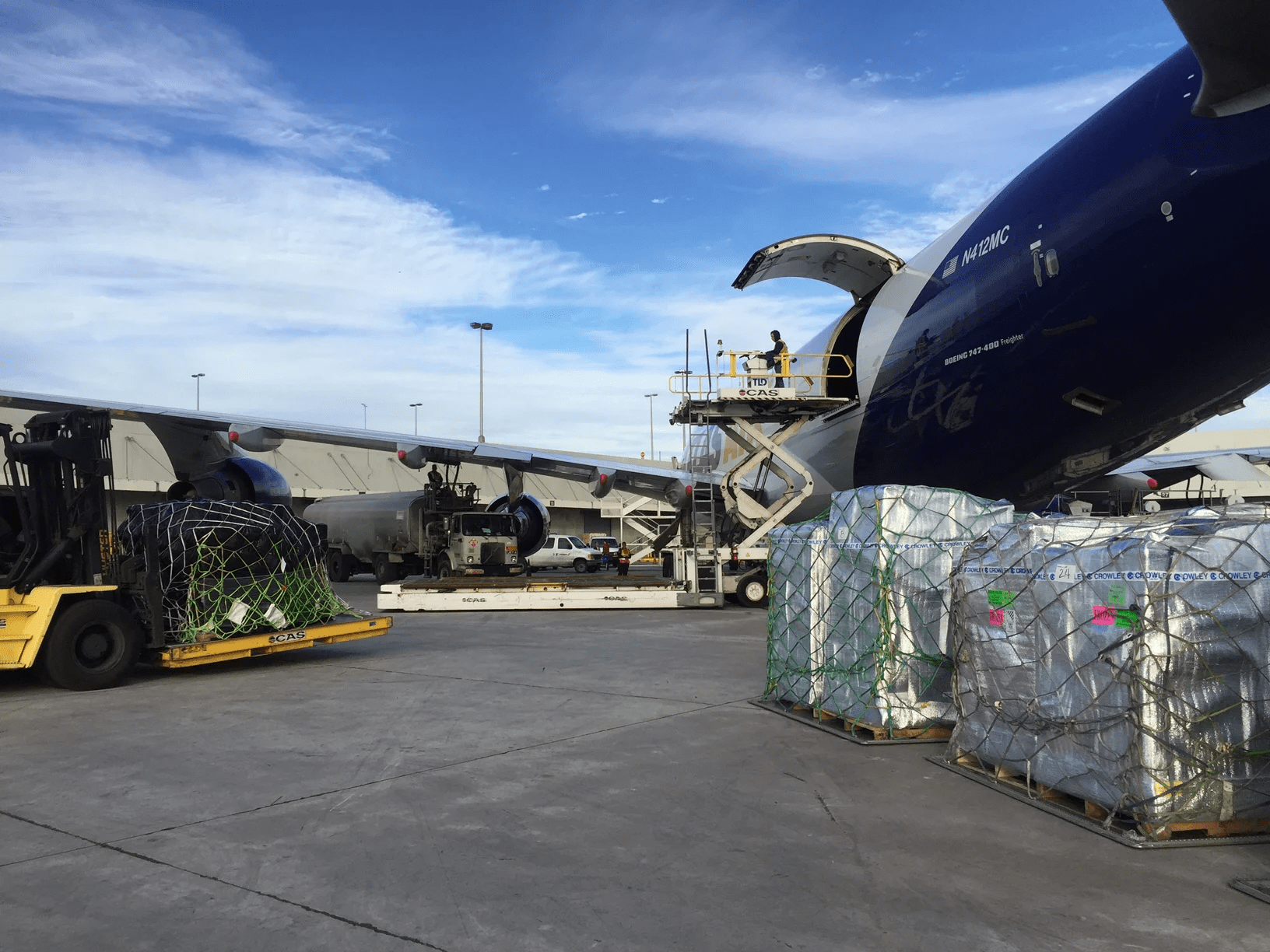
For urgent shipments, we select the most suitable airlines according to your schedule, making China Top Freight your trusted partner for air freight from China to the Maldives.

Whether for business or personal cargo, our complete door-to-door solutions cover pickup, transportation, and customs clearance in the Maldives, ensuring a smooth and worry-free shipping experience.
With our contract rates from leading carriers, we can lower your shipping costs. Choosing FCL to the Maldives makes China Top Freight your trusted logistics partner.
Along with competitive ocean freight rates, we provide professional support at Maldives ports, ensuring smooth handling and a hassle-free shipping experience.

China Top Freight will provide most fuel efficient pickup service China
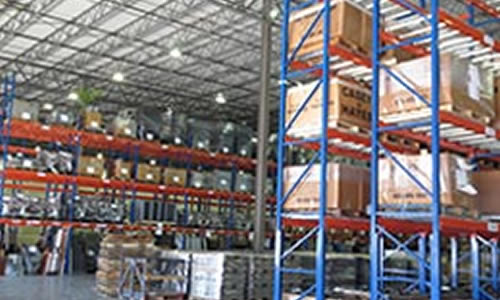
We provide free warehousing services for any of your goods.
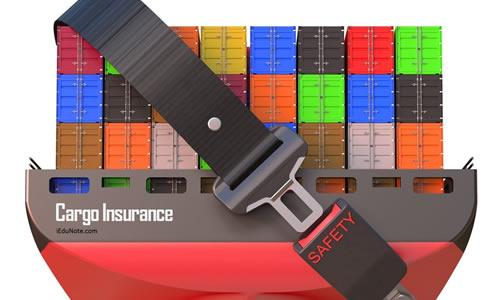
The cargo insurance protects your goods all the way to any Any FBA Warehouse

We handle all paperwork and other details for you.
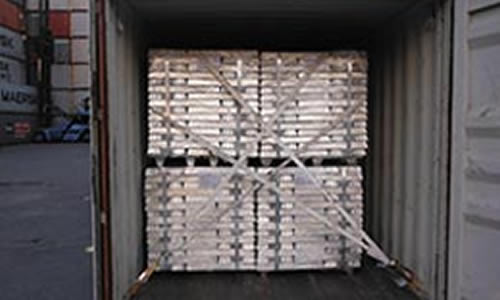
Ensure safe packaging and loading of goods in your suppliers' factory.
The duration of shipping from China to the Maldives can vary depending on several factors, primarily the mode of transportation chosen. Here's an estimation for each mode:
Air Freight: Shipping by air is the fastest option. Typically, air freight from China to the Maldives takes around 3 to 7 days for door-to-door delivery, including customs clearance.
Sea Freight: Shipping by sea takes longer but is generally more cost-effective, especially for larger shipments. Sea freight from China to the Maldives can take approximately 20 to 40 days, depending on factors such as the shipping route, transshipment points, and customs clearance procedures.
Keep in mind that these time frames are estimates and can vary based on various factors like the specific origin and destination locations, the carrier's schedules, customs procedures, and any unforeseen delays. It's advisable to work closely with your chosen shipping provider or freight forwarder to get accurate transit time estimates and to monitor the progress of your shipment throughout the shipping process.
Shipping from China to the Maldives can vary in cost depending on several factors, including the shipping method, the size and weight of the shipment, the departure and destination locations, and any additional services required. Here's an overview of the typical shipping costs for various methods:
Ocean Freight: Ocean freight is commonly used for shipping goods from China to the Maldives. The cost of ocean freight depends on factors such as the shipping container size (20ft, 40ft), the shipping route, and any additional services like door-to-door delivery or customs clearance. Since the Maldives is an island nation, shipping costs may be higher compared to mainland destinations. On average, shipping a standard 20-foot container (FCL) from major ports in China to the Maldives can range from $2000 to $5000 USD, while a 40-foot container may cost between $3000 and $7000 USD.
Air Freight: Air freight is faster but more expensive than ocean freight. The cost of air freight from China to the Maldives is typically calculated based on the weight and volume of the shipment. On average, air freight rates can range from $5 to $20 USD per kilogram or more, depending on factors such as the urgency of delivery, the type of cargo, and the specific air carrier.
Courier Services: Courier services like DHL, FedEx, and UPS offer expedited shipping options for smaller packages and parcels. While courier services are faster than traditional freight methods, they tend to be more expensive. Shipping costs for courier services from China to the Maldives can vary based on the package size, weight, and delivery speed. As a rough estimate, shipping a small parcel weighing 1 kg via courier from China to the Maldives may cost anywhere from $50 to $150 USD or more, depending on the service level chosen.
Additional Costs: Additional costs such as fuel surcharges, customs duties and taxes, insurance, documentation fees, and handling charges should be considered when calculating the total shipping cost.
It's advisable to obtain quotes from multiple freight forwarders or shipping carriers to compare prices and find the most cost-effective shipping solution for your specific needs. Additionally, ensure compliance with any import regulations or restrictions applicable to shipments entering the Maldives.
Shipping from China to the Maldives typically involves air freight due to the geographic location of the Maldives as an island nation. Here's a general guide to help you through the process:
Choose a Shipping Method: Air freight is the most common method for shipping from China to the Maldives due to its faster transit time. You can contact airlines directly or work with freight forwarders to arrange air cargo shipments. Consider factors like cost, urgency, and the nature of the goods being shipped.
Prepare the Shipment: Package your goods securely according to the airline's or freight forwarder's guidelines to prevent damage during transit. Ensure all necessary documentation, including a commercial invoice, packing list, and any required permits or licenses, are prepared.
Select a Shipping Carrier or Freight Forwarder: Choose a reputable airline or freight forwarder that offers air cargo services from China to the Maldives. Research carriers based on shipping time, cost, reliability, and any additional services they offer. Freight forwarders can handle the logistics of your shipment, including booking cargo space and customs clearance.
Calculate Shipping Costs: Obtain quotes from different carriers or freight forwarders to compare shipping costs. Consider factors like cargo weight, dimensions, and destination. Air freight rates may vary depending on the airline, route, and demand.
Arrange Pickup or Drop-off: Coordinate with the chosen airline or freight forwarder to arrange pickup or drop-off of your shipment. Depending on the carrier, you may have the option for door-to-door service or dropping off your shipment at a designated location.
Complete Customs Clearance: Prepare all necessary customs documentation, including a commercial invoice, packing list, and any permits or licenses required for your goods. Ensure compliance with customs regulations in both China and the Maldives. Freight forwarders can assist with customs clearance procedures.
Track Your Shipment: Use the tracking number provided by the airline or freight forwarder to monitor your shipment's progress. This allows you to receive updates on its estimated arrival time and ensure it reaches its destination smoothly.
Receive Your Shipment: Once your shipment arrives in the Maldives, coordinate with the airline or freight forwarder for customs clearance and delivery to your desired destination. Be prepared to pay any applicable customs duties, taxes, or fees upon receipt of your shipment.
Resolve Any Issues: If there are any issues or delays with your shipment, contact the airline or freight forwarder for assistance in resolving the problem. Be proactive in addressing any issues that may arise during the shipping process to ensure a successful delivery.
Provide Feedback: After receiving your shipment, consider providing feedback to the airline or freight forwarder. This can help improve their services and assist other customers shipping to the Maldives in the future.
By following these steps and working with reputable airlines or freight forwarders, you can ensure a smooth shipping process from China to the Maldives. Stay informed about any specific regulations or requirements related to shipping goods to the Maldives to avoid delays or complications.
Arranging air freight from China to the Maldives involves several steps. Here's a general guide to help you through the process:
Cargo Details: Gather all necessary information about your cargo, including dimensions, weight, type of goods, and any special handling requirements.
Find Freight Forwarders: Look for reputable freight forwarding companies that offer air freight services from China to the Maldives. You can search online, ask for recommendations from business contacts, or check directories like the International Air Transport Association (IATA) website.
Request Quotes: Contact multiple freight forwarders and request quotes for shipping your cargo. Provide them with detailed information about your shipment to ensure accurate pricing.
Compare Prices and Services: Compare the quotes you receive from different freight forwarders. Consider factors such as price, transit time, reliability, insurance options, and additional services offered.
Book Your Shipment: Once you've selected a freight forwarder, book your shipment with them. Provide all necessary documentation, including commercial invoices, packing lists, and any permits or licenses required for your cargo.
Arrange Pickup or Drop-Off: Coordinate with the freight forwarder to arrange pickup of your cargo from the supplier in China or drop-off at their warehouse. Ensure that your cargo is properly packaged and labeled according to air freight regulations.
Track Your Shipment: Most freight forwarders offer online tracking services that allow you to monitor the status of your shipment in real-time. Stay in communication with your freight forwarder for any updates or issues regarding your shipment.
Customs Clearance: Your freight forwarder will handle customs clearance procedures on your behalf. Provide all necessary documentation and information to facilitate smooth customs clearance.
Delivery to Destination: Once your shipment clears customs in the Maldives, the freight forwarder will arrange for delivery to your specified destination. Coordinate with them to ensure a smooth delivery process.
Payment: Ensure that you settle any outstanding payments with the freight forwarder according to your agreed terms and conditions.
By following these steps and working with a reliable freight forwarder, you can efficiently arrange air freight from China to the Maldives for your cargo. Additionally, stay updated on any regulations or restrictions that may affect shipping between China and the Maldives.
Arranging sea shipping from China to the Maldives typically involves several steps due to the geographical location of the Maldives as an island nation. Here's a general guide on how to arrange the shipment:
Research Shipping Companies: Look for shipping companies that offer services to the Maldives. Since the Maldives is an island nation, you'll need to find companies that specialize in maritime transportation to remote island destinations.
Contact Shipping Companies: Reach out to several shipping companies to inquire about their services, rates, schedules, and terms for shipping goods from China to the Maldives.
Get Quotes: Request quotes from different shipping companies to compare prices and services. Make sure to ask about any additional fees or charges that may apply for transportation within the Maldives.
Choose a Shipping Method: Decide on the most suitable shipping method based on your budget, urgency, and the nature of your cargo. Options may include container shipping, roll-on/roll-off (RoRo) shipping, or specialized cargo vessels.
Book Your Shipment: Once you've selected a shipping company and agreed on the terms, book your shipment. Provide all necessary documentation including commercial invoices, packing lists, and customs declarations.
Prepare Your Cargo: Properly pack and prepare your cargo for shipping according to the requirements of the shipping company and relevant regulations.
Arrange Pickup or Drop-off: Coordinate with the shipping company to arrange pickup of your cargo from your supplier in China or drop-off at their warehouse or designated location. Also, arrange for the cargo to be transported from the port of arrival in the Maldives to its final destination.
Track Your Shipment: Stay informed about the status of your shipment by tracking it online or through updates provided by the shipping company.
Clear Customs: Work with customs brokers or agents to clear your shipment through customs in both China and the Maldives. Provide all necessary documentation and ensure compliance with customs regulations.
Receive Your Cargo: Once your cargo arrives at its destination in the Maldives, arrange for its pickup or delivery to your specified location. Inspect the cargo for any damage and verify that everything is in order.
Handle Import Duties and Taxes: Pay any applicable import duties, taxes, or fees required to release your cargo from customs and complete the import process in the Maldives.
Review and Improve: After your shipment has been delivered, take the time to review the shipping process and identify any areas for improvement.
Ensure effective communication with your shipping company and other parties involved to facilitate a successful shipping process from China to the Maldives. Additionally, be aware of any specific regulations or restrictions related to shipping and customs procedures between China and the Maldives.
Air shipping from China to the Maldives is typically used when there is a need for:
Speed: Air shipping is significantly faster than sea shipping. If you have time-sensitive cargo or need to meet tight deadlines, air shipping is the best option. It can take just a few days for goods to reach the Maldives by air, whereas sea shipping can take several weeks.
High-Value or Perishable Goods: Air shipping is often preferred for high-value goods or perishable items that require quick delivery to maintain their quality. Examples include electronics, pharmaceuticals, fresh produce, and fashion items.
Small Shipments: If you have relatively small shipments that don't justify the cost of a full container, air shipping offers a cost-effective solution. You can send smaller quantities of goods without having to wait for a full container to be filled.
Urgent Shipments: In emergency situations or unforeseen circumstances, air shipping provides a rapid solution to get your goods to the Maldives promptly.
Reduced Inventory Holding Costs: By opting for air shipping, you can minimize inventory holding costs since goods spend less time in transit compared to sea shipping. This can be advantageous for businesses looking to maintain lean inventory levels.
However, it's important to note that air shipping is generally more expensive than sea shipping. Therefore, it's essential to weigh the benefits of speed and efficiency against the higher cost when deciding whether to use air shipping from China to the Maldives.
When importing goods from China to the Maldives, the taxes and duties you need to pay will depend on several factors, including the type of goods, their declared value, and any applicable trade agreements between China and the Maldives. Here's an overview of the typical taxes and duties that may apply:
Goods and Services Tax (GST): The Maldives imposes a Goods and Services Tax (GST) on imported goods. The standard GST rate is 6%. Certain goods may be subject to a higher rate.
Customs Duty: Depending on the type of goods and their classification under the Harmonized System (HS) code, customs duties may apply. The rates vary depending on the specific product category and can range from 0% to higher percentages.
Other Fees and Charges: In addition to GST and customs duties, there may be other fees and charges associated with importing goods into the Maldives, such as customs clearance fees, documentation fees, and administrative charges.
It's important to note that the Maldives has various trade agreements and exemptions in place that may affect the amount of taxes and duties payable on imported goods. For example, certain products may qualify for preferential tariff rates under trade agreements such as the South Asian Free Trade Area (SAFTA) or the Maldives-China Free Trade Agreement (MCFTA).
To determine the exact amount of tax and duty you need to pay when importing goods from China to the Maldives, you should consult with the Maldives Customs Service or seek assistance from a licensed customs broker or freight forwarder. They can provide you with detailed information on the specific rates and regulations applicable to your imported goods and help you calculate the total importation costs accurately.
When shipping goods from China to the Maldives, choosing between LCL (Less than Container Load) and FCL (Full Container Load) depends on various factors. Here's when you might choose each option:
Volume of Goods:
Cost Considerations:
Transit Time:
Frequency of Shipments:
Cargo Type and Fragility:
Space and Storage Requirements:
Consider these factors based on your specific shipment requirements, budget constraints, and preferences for transit time and cargo handling when choosing between LCL and FCL for shipping from China to the Maldives. Consulting with your freight forwarder or shipping provider can also help determine the most suitable option for your shipments.
Choosing between Less than Container Load (LCL) and Full Container Load (FCL) shipping when transporting goods from China to the Maldives depends on several factors. Here's a breakdown to help you decide:
Volume of Goods:
Urgency:
Nature of Goods:
Cost Considerations:
Customs Clearance:
Logistics Flexibility:
Ultimately, the decision between LCL and FCL depends on your specific shipping requirements, budget, and preferences. It's advisable to consult with your freight forwarder or logistics provider to determine the most suitable option for your shipment from China to the Maldives.
When deciding between Less than Container Load (LCL) and Full Container Load (FCL) shipping from China to the Maldives, consider several factors to make an informed choice:
Volume of Goods: If you're shipping a relatively small volume of goods that won't fill an entire container, LCL might be more cost-effective. LCL allows you to share container space with shipments from other customers, so you only pay for the space your goods occupy.
Urgency: If your shipment is time-sensitive and you need faster transit times, FCL might be preferable. With FCL, your goods are loaded into a container dedicated solely to your shipment, which can lead to quicker transit times compared to LCL, where the container may need to wait until it's filled with cargo from multiple shippers.
Security and Risk: With FCL, your goods are loaded into a sealed container, reducing the risk of damage or loss compared to LCL, where goods from multiple shippers are consolidated into one container. If your shipment contains fragile or high-value items, FCL might provide greater security.
Cost: Generally, FCL can be more cost-effective for larger shipments that can fill a container, as you're not paying for consolidation and deconsolidation services associated with LCL. However, for smaller shipments, LCL can be more economical as you're only paying for the space your goods occupy.
Customs Clearance: Consider the customs clearance procedures and requirements in both China and the Maldives. While both LCL and FCL shipments require customs clearance, the process may vary based on the shipment size and contents. Your freight forwarder or shipping agent can provide guidance on customs procedures for both LCL and FCL shipments.
Ultimately, the choice between LCL and FCL depends on your specific shipment requirements, including volume, urgency, security considerations, and budget. It's advisable to work closely with your freight forwarder or shipping agent, who can assess your needs and recommend the most suitable shipping option for your cargo from China to the Maldives.
Operations deal with the way the vehicles are operated, and the procedures set for this purpose, and policies. In the transport industry, operat ions and ownership of infrastructure can be either country.
There are good services in this web which is meaningful for a human and we have the benefit of good services in it.